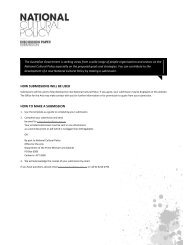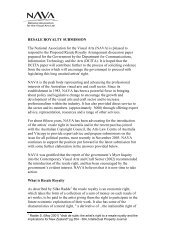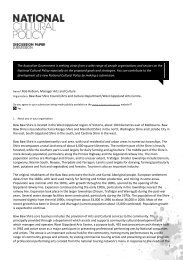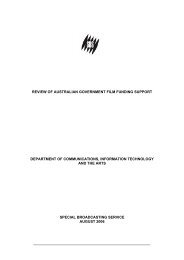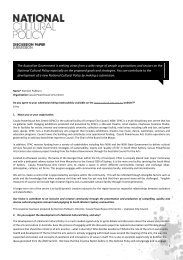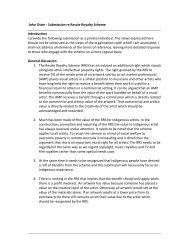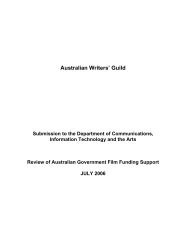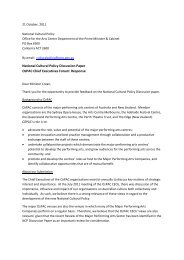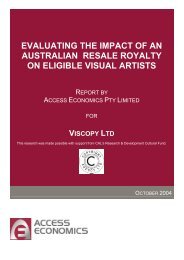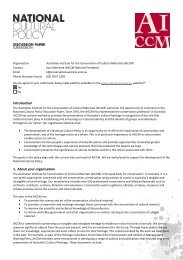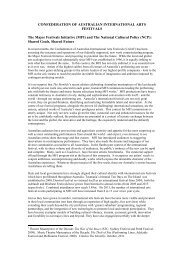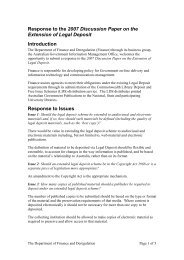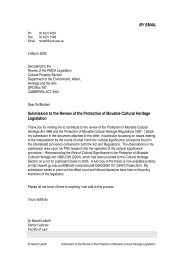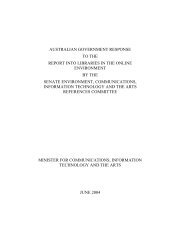Discussion paper (PDF - 459 KB)
Discussion paper (PDF - 459 KB)
Discussion paper (PDF - 459 KB)
You also want an ePaper? Increase the reach of your titles
YUMPU automatically turns print PDFs into web optimized ePapers that Google loves.
Immunity from Seizure for Cultural Objects on Loan - <strong>Discussion</strong> Paper 2011Australia’s Current Legislative FrameworkAppendix AProtection of Movable Cultural Heritage Act 1986The Commonwealth Protection of Movable Cultural Heritage Act 1986 (PMCH Act) commencedoperation on 1 July 1987. The PMCH Act:• gives effect in Australia to the 1970 UNESCO Convention on the Means of Prohibiting andPreventing the Illicit Export and Transfer of Ownership of Cultural Property; and• specifically protects Australia’s movable cultural heritage objects, and supports the right offoreign countries to protect their heritage of movable cultural objects; and• provides temporary exemption from export control for Australian Protected Objects (APOs,which are established under the PMCH Act Regulations) that are being temporarily importedinto Australia for the purposes of an exhibition or sale, through the granting of a Certificate ofExemption. A Certificate of Exemption does not protect objects from all judicial seizure andapplies only to APOs as defined by the PMCH Act, not objects of international or foreignsignificance which are not also APOs. Importantly, Certificates of Exemption granted under thePMCH Act are not a guarantee of an ability to re-export by the applicant, but instead providean exemption from being subject to the PMCH application and determination process, i.e. theyexempt the importer/exporter from being required to apply for an export permit for thatobject, and therefore prevent the refusal of export or that object.Limitations of the PMCH ActThe PMCH Act offers no immunity from other Commonwealth, state or territory law. Any Australianlaw that might affect property such as ownership laws, customs law and the like, may allow the seizureof objects in certain circumstances, for example as evidence in a criminal or customs matter.Foreign States Immunities Act 1985The Commonwealth Foreign States Immunities Act 1985 provides protection to objects owned by aforeign Government/State (i.e. part of a national collection) brought to Australia for publicnon-commercial reasons. There are exceptions to foreign state immunity in proceedings concerningcommercial transactions. This means that if a third party claiming ownership or interest in culturalproperty which was temporarily in Australia brought legal proceedings against the foreign governmentwhich owned that property, and the loan was found to be commercial, the property would not beprotected under this Act. It is possible that loans to Australian collecting institutions would beconsidered commercial transactions in a court of law, and therefore this Act cannot be considered toprovide protective coverage against seizure for objects on loan.19



